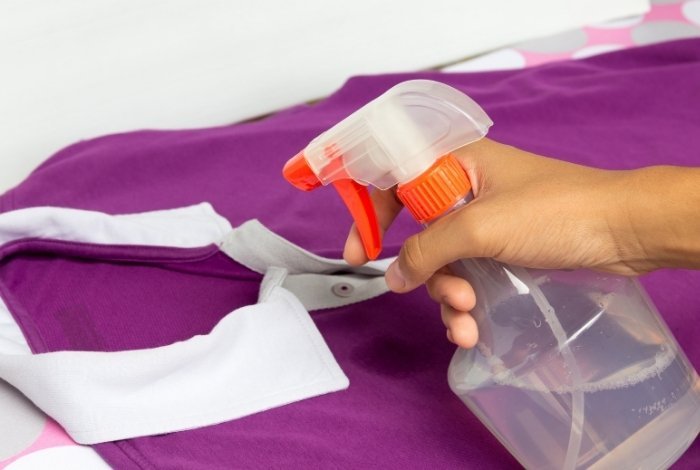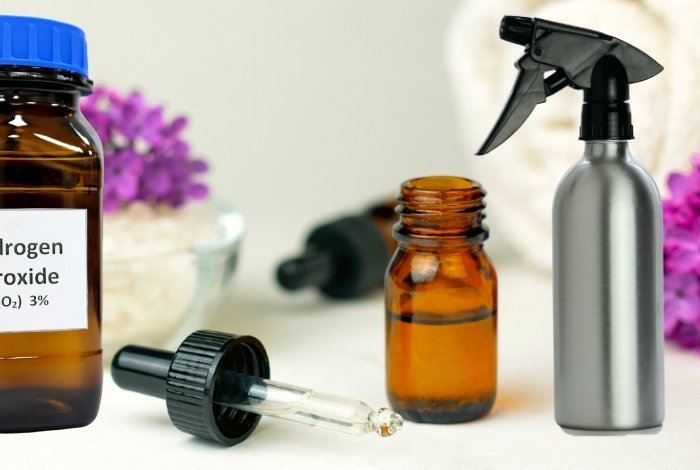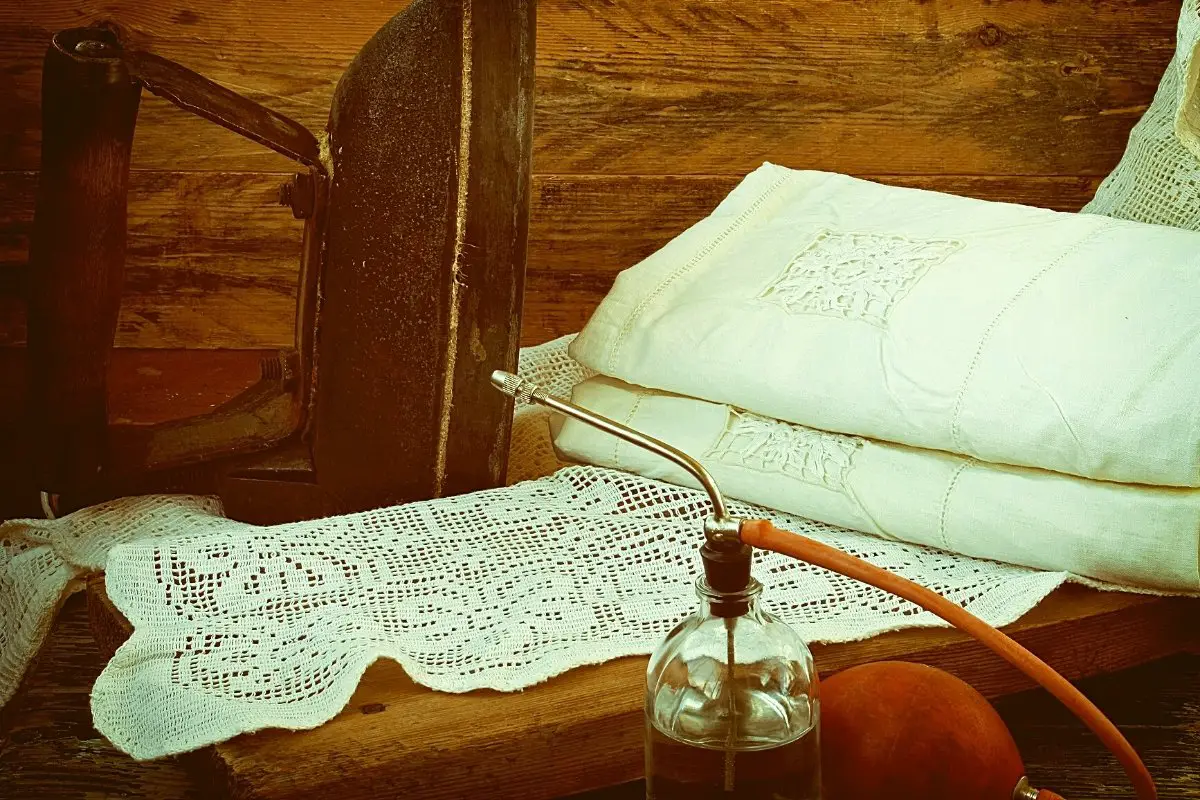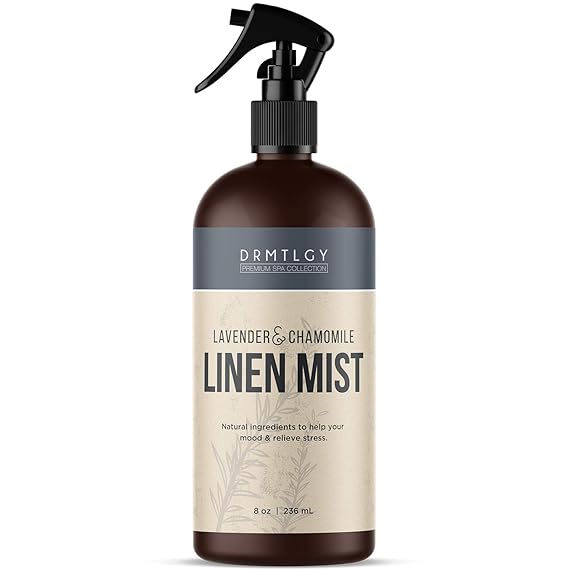A linen spray will come in handy to add crispness and freshness to your fabric, especially during the storage stage of your laundry. But is it worth it to spend money on linen spray at the store when you can make it indoors? If you think you can save yourself the expenses, you’ll find value in the sections below on how to make DIY linen spray without alcohol.
Why Use Linen Spray?
Aside from the fact that they could add freshness and sweet scenting aromas to your clothing, there are numerous other ways you can find a DIY linen spray without alcohol to be useful. They include:
- It could help add freshness to the room to improve the air.
- It can enhance your fabrics’ smell, including your dress, clothes, bedsheets, towels, and underwear.
- Spray it in the room before bed to help improve sleep.
- Use it on soft furnishing to enhance the smell before receiving guests.
- A healthy option to help improve mood and relieve anxiety (aromatherapy).

Check out How to Dilute Essential Oils for Spray at Home
Buy Or Make Natural Linen Spray?
As they are not expensive to get from the store, you may want to consider saving yourself the stress and mess and getting it at the shop. But there are many reasons why you want to learn how to make DIY linen spray without alcohol. For one, you know a new special recipe you can pass on to others, and you can be sure not to run out of organic fragrance for fabric again.
When shopping through the store, you can never be sure of the ingredients’ quality in the mix, and that’s just one of them. There is also the chance that you’ll find that most contain alcohol in them. But this doesn’t mean that there are no options. The thing is, you may have to do a bit of searching to find one.
Again, it will cost you more to buy one than to make it in your kitchen. There is also the fact that you get more portion when you make it yourself than when you buy. I’m not trying to pull down store-bought options; I’m only trying to point out the benefits if you choose to try out the recipe below.
The decision is up to you when deciding which option will be best suited for you, but if you ask me, it’s best you learn how to make it. It doesn’t require much, and the procedure isn’t stressful as you imagined.
DRMTLGY Natural Lavender Linen and Room Spray
How To Make DIY Linen Spray Without Alcohol?
It may seem strange that you will be making a deodorant-type spray without the use of alcohol. But the truth is that it could also work excellently well if you know how to make it right. You can learn just how in the section below.
Essential Oil Linen Spray Recipe Procedure
It’s nothing complex, and you want to assemble the materials which can be sourced locally, and there is a probability you have them in your kitchen. They are
Ingredients
- Small jar with a tight lid
- Spray bottle
- 6 tablespoons of water
- 10 drops of lavender essential oil
- 12 drops of fir essential oil
- 12 drops of lemon essential oil
- 2 tablespoons of hydrogen peroxide (alternative to alcohol)
DIY Linen Spray Preparation
Once you have assembled all the ingredients, you will now get started with the preparation.
- Combine the hydrogen peroxide and lavender essential oil in the jar. Cover the lid and shake well to ensure the two liquids mix correctly. It is almost impossible to get a thorough mix, but it should be enough after stirring for 30 seconds.

- Now add in the fir and lemon essential oil to improve the potency of the linen spray. You can make use of only lavender, but I find it to have more scent and potency when you add in a few others. So fir and lemon should do the trick.
- Add in the water and cover the lid again while shaking the jar continuously.
- Once mixed, get the content into the spray bottle. You can use a small funnel if available.
- Store in a cool, dry place and use as desired.
How to Make Fabric Spray with Laundry Detergent?
To make a fabric spray with laundry detergent, you will need:
Ingredients:
- Water
- Laundry detergent
- Essential oils (optional but preferable)
Instructions:
1. Fill a clean spray bottle with water.
2. Add a small amount of laundry detergent to the water. Roughly speaking, you should add 1 teaspoon of detergent for every cup of water you put in the bottle.
3. Since some of you are big fans of fragrances, we suggest adding a few drops of your favorite essential oil, trust us, you won’t go wrong.
4. Close the spray bottle and shake it well to mix the ingredients.
Now comes the tricky part where you should check if your DIY fabric spray with laundry detergent works at all. All you need to do is test the fabric spray on a small, inconspicuous area of the fabric to make sure it doesn’t cause staining or discoloration. If the fabric spray works effectively, you can use it to spot and treat stains or to freshen up fabrics around your home. Simply spray the solution onto the fabric and wait a few minutes before rinsing it off.
How To Make Lavender Room Spray With Dried Lavender?
You will need the following materials and ingredients to prepare a super fragrant lavender room spray using dried lavender.
Ingredients:
- 1/4 cup of dried lavender flowers
- 1 cup of distilled water
- 1/4 cup of alcohol (vodka or rubbing alcohol, whatever you have on hand)
- Essential oils (optional but preferable)
- A small spray bottle
Instructions:
1. Bring 1 cup of distilled water to a boil in a small saucepan.
2. Add 1/4 cup of dried lavender flowers to the boiling water and remove the pan from the heat.
3. Allow the lavender flowers to soak for 30 minutes before straining through a fine-mesh strainer or cheesecloth.
4. Transfer the lavender-infused water to a small spray bottle.
5. Fill the spray container with 1/4 cup of alcohol (vodka or rubbing alcohol). This extends the scent’s duration and improves the solution’s adhesion to surfaces.
6. You may also add a few drops of essential oils to the spray if you want to add some extra scent. Lavender, chamomile, and eucalyptus are all excellent options that have never left us indifferent.
7. Shake the spray bottle well to mix the ingredients.
8. Spray the lavender room spray around the room as needed to freshen the air and add a relaxing lavender scent.
How Long Does Linen Spray Last?
The shelf life of homemade linen spray will depend on the specific ingredients you use and how you store them. In general, handmade linen sprays can remain intact for many months or even years.
How Do You Make Linen Spray Last Longer?
There are a few ways you can make your homemade linen spray last longer, and these are our favorites:
1. Add alcohol to the recipe
As we have already stated, adding alcohol to linen sprays is not a crazy idea because it helps the scent last longer and makes it easier for the solution to better adhere to surfaces. You can use vodka or rubbing alcohol in your linen spray recipe, whatever you have on hand will serve the purpose. The most important thing is to always opt for high-proof alcohol to ensure the best results.
2. Use essential oils
Essential oils are one of the most popular linen spray additives as they are highly concentrated and have a long-lasting scent. Therefore, feel free to add a few drops of essential oils to boost the fragrance and make it last longer. Lavender, chamomile, and eucalyptus are all fantastic scents that guarantee the best results.
3. Store properly
You probably didn’t think about it, but, light and heat can break down the scent of your linen spray. So the best thing you can do is store it in a cool, dark place when it’s not in use. This will certainly help the scent to last longer.
4. Don’t overuse the spray
We’re not sure if you have ever taken a minute to think about it, but here’s your chance – the more you use the spray, the faster the scent will dissipate. So, to make your linen spray last longer, apply it sparingly and just when you need a scent boost.
By following these guidelines, you should be able to prolong the life of your handmade linen spray and enjoy its aroma for a longer period. Let us know if it works for you!
How Do You Make Antibacterial Linen Spray?
To make an antibacterial linen spray, you will need to add ingredients to your recipe that have antimicrobial properties, and here’s a quick and easy recipe to do it:
Ingredients:
- 1 cup of distilled water
- 1/4 cup of rubbing alcohol (be sure to choose at least the 70% one)
- 10 drops of tea tree oil
- 5 drops of eucalyptus oil
Instructions:
1. Combine the distilled water, rubbing alcohol, tea tree oil, and eucalyptus oil in a tiny spray bottle.
2. Shake the bottle vigorously to thoroughly combine the contents.
3. Spray and use as needed to kill bacteria and freshen the air.
One very important note, remember, this linen spray is not intended to be used as a disinfectant or to substitute basic hand washing and other hygiene procedures. Quite the opposite, it is intended for use as a general surface cleaner and freshener.
How Do You Make Lemon Linen Spray?
Here’s what you need to do to enjoy your DIY lemon linen spray:
Ingredients:
- 1 lemon peel
- 1 cup of distilled water
- 1/4 cup of alcohol
- A small spray bottle
Instructions:
1. Remove the zest from 1 lemon.
2. Fill a small saucepan with distilled water and bring it to a boil.
3. Add the lemon zest to the boiling water and remove the pan from the heat.
4. Allow the mixture to cool for at least 30 minutes before straining the lemon zest through a fine-mesh strainer or cheesecloth.
5. Pour the solution into a small spray bottle.
6. Add alcohol to a spray bottle.
7. Shake the bottle well to mix the ingredients.
Final Note
When done correctly, you should get a sweet-smelling preparation that is safe to use on your fabrics and indoors to improve the air. There are many other ways you can find a linen spray to be useful, and it all boils down to which particular scents you want. You want to keep them away from kids and pets as hydrogen peroxide, and essential oils could cause stomach upset when ingested, so it is best to store them at a height.


